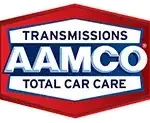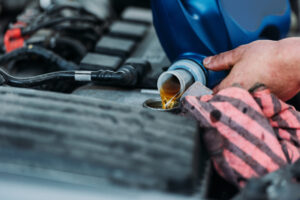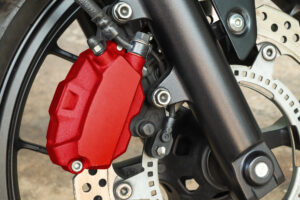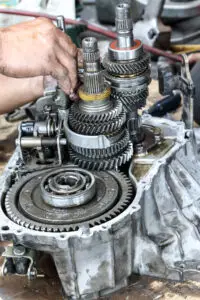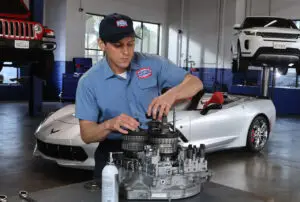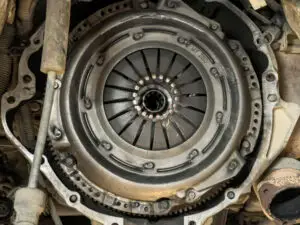A common belief is that DIY car maintenance and repairs can help save a buck. While that’s true in the short term, doing certain maintenance or repairs yourself may end up causing more problems and costing more money in the long run. If you want to take care of your car at home, there are a few key things to do — and others to leave for a professional mechanic. The decision between those two options comes down to complexity and your car’s overall performance.
Simple Car Maintenance to Do at Home
There are several tasks you can do to keep your car running smoothly. Checking its fluids, keeping an eye on tire health, watching the wipers, and ensuring the interior and exterior stay clean will help prolong the life of your vehicle and keep you safe on the road.
Check Tires & Maintain Proper Tire Pressure
Tire health is key to your car’s performance, as well as your safety while driving. Regularly check the tire tread and pressure. Your tire tread is where your vehicle makes contact with the road. If it’s over-worn, you won’t have the traction control you need to navigate twists and turns, especially on wet roads. Use a tire tread gauge to measure — and turn your wheels so you can take measurements from both the inside and outside of your tires.
Most vehicles come with a tire pressure sensor that alerts you when any tires are above or below the recommended range. However, it’s a good idea to keep a manual tire pressure gauge on hand to verify and always consult your owner’s manual for the recommended range. You can easily top off your tires if any become low or release air if the pressure is too high.
Check & Top Off Fluids
Your vehicle uses several fluids to keep key systems operating and keep you safe on the road. Engine oil can be checked using a dipstick under the hood of your car. Doing so regularly can help you catch leaks and other issues early, avoiding more serious damage. If need be, you can top off your engine oil — just be sure to use the type recommended in your owner’s manual. The coolant reservoir is often near the engine. Coolant can also be topped off if it becomes low, though it likely signals a leak that should be located and repaired. Finally, it’s important to keep simple fluids like windshield wiper fluid filled to maintain visibility no matter the weather.
Change the Windshield Wipers
In most vehicles, it’s simple to learn how to change the windshield wipers. Aim to do this once or twice a year — or when you start to notice streaks when using your wipers. Over time, the rubber on your windshield wipers becomes dry, cracked, or otherwise damaged. Once this happens, it’s necessary to have them replaced right away to ensure you can maintain proper visibility. If you’re not sure which type of wipers to get for your vehicle, you can check with an auto shop or your owner’s manual.
Keep it Clean
A clean car is more than just cosmetic. As part of your regular at-home maintenance, plan to wash the exterior and interior of your car. Washing dirt and debris from the outside of your car helps in several ways, including preventing rust or corrosion buildup and allowing you to see when there’s a larger issue that needs attention. On the other hand, keeping the interior of your vehicle clean helps prevent safety issues while driving, as well as retaining car value and extending the life of your vehicle overall.
When & Why to Call a Professional Mechanic
Most car problems and maintenance are best handled by a professional mechanic. Once you reach the point of needing repairs — or even just want to prevent surprise repairs — it’s best to have a mechanic you trust to regularly inspect key systems and components. Bringing your vehicle to an auto shop for oil changes, brake services, and other repairs allows them to do more than just what’s necessary right away.
Oil Change & Engine Tune-Ups
A well-functioning engine is essential for your car’s performance. Most vehicles need an oil change service every 6-12 months, and even more frequently depending on the amount of mileage the car is driven. This helps minimize wear or damage to internal components, improves fuel economy, and allows for optimal engine performance. On the other hand, engine tune-up services are recommended annually. During this service, your mechanic will check components related to fuel combustion, including the spark plugs and fuel injectors. During these engine maintenance services, your mechanic can also pay attention to signs of other problems that may need to be repaired.
Replacing Brake Pads & Rotors
Though changing brake pads and rotors seems like a simple service, if done incorrectly, it can lead to major safety issues. An incorrectly-installed brake pad can quickly make it difficult to slow your vehicle. Bringing your vehicle to a trusted mechanic for brake servicing helps ensure the replacement of any components is done properly and any other related brake issues are caught early.
Changes in Performance that Point to a Larger Issue
Any change in your car’s performance should be assessed by a professional mechanic. Whether there are signs of a fluid leak, new sounds have started up while driving, or you don’t seem to have the same acceleration power as you used to, it’s important to have it accurately diagnosed and repaired. Your mechanic has the experience and tools to ensure any issues are properly fixed, while you may find yourself shooting in the dark when trying to handle repairs at home, leading to bigger problems down the road.
For the Best Car Maintenance in Chicagoland, Visit AAMCO
Keep your car running at its best in Chicagoland. Visit your local AAMCO and our expert mechanics will help handle any maintenance or repairs your vehicle needs. You’ll drive away confident that each essential system is operating smoothly. Schedule your appointment with us today!
